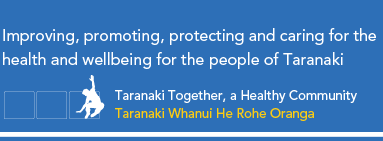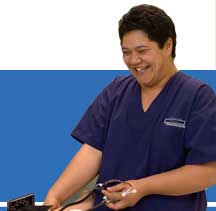Bowel Cancer awareness week – don’t hide your symptoms
14 June 2012
Bowel cancer is New Zealand’s most common cancer and second biggest cancer killer. The good news is that 75% of cases can be cured if they are diagnosed and treated early.
“Don’t sit on your symptoms” is the advice from Taranaki DHB physician and gastroenterologist Dr Campbell White to promote bowel cancer awareness week.
“If you have any change in bowel habit or rectal bleeding you should talk to your GP. And if you have a family history of bowel cancer you should let your doctor know”.
A Colonoscopy is the diagnostic procedure look for bowel cancer. It is a diagnostic tool but as it can also remove any pre cancerous polyps it can also prevent cancer.
Population screening programmes have been proven to reduce bowel cancer mortality. Work is being done nationally to move toward this goal.
Dr White has been involved in a national programme looking at this growing issue. The programme has looked at optimizing the quality of all endoscopy units around the country, and training pathways for doctors learning colonoscopy techniques are being expanded. A larger number of trained colonoscopists and endoscopy theatres would be needed to make a screening programme function.
Currently a screening pilot at Waitemata DHB is underway which may be rolled out nationwide. This involves sending out screening kits to look for hidden blood in the bowels in people age 55-75. Those who test positive are then offered colonoscopy.
In Taranaki the DHB has committed to including a second endoscopy theatre in Project Maunga, the re-development at Taranaki Base Hospital, to allow more Colonoscopy to be performed. “We decided to future proof the new hospital so we can run two theatres instead of the one we have now,” said Dr White. “The risk of bowel cancer increases with age so as our population ages we needed to plan ahead.”
As far as a personal screening programme is concerned he believes that if you are over 55 years of age it’s a good idea to consider having a colonoscopy as a pre caution. Without symptoms it will have to be done privately at this stage but he believes early detection is the key.
If you have symptoms, let your doctor know. They can refer you for further testing.
For more information please call
Sue Carrington
Media Adviser
Ph 021 367 789
Last updated: Thursday, June 14, 2012



